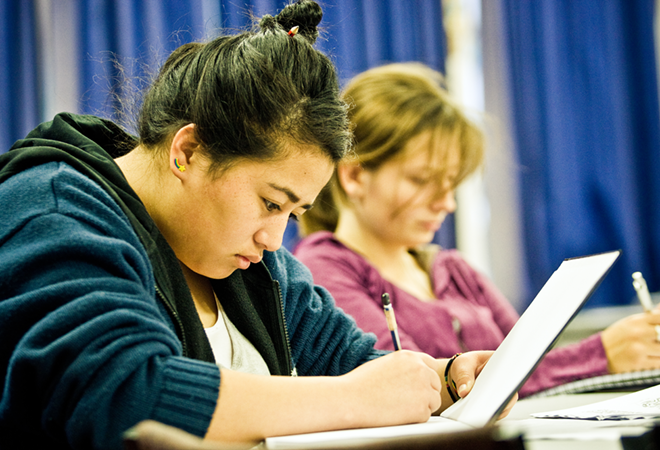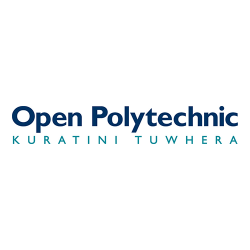
How Māori Distance Students can have a Sense of Belonging
Status
Completed: 19 July 2013
Project Details
A project completed in 2013, undertaken by the The Open Polytechnic, to investigate an online mentoring space that uses the principles of kaupapa Māori alongside the principles of peer mentoring to develop culturally relevant support that not only meets the students learning needs, but their cultural needs as well.
Aims:
The main aims of the project were to:
- identify some of the challenges Māori students face in the distance learning environment and the extent to which peer support has an impact on their learning experiences and achievement
- evaluate the effects of a cyber-Whare and a Kaupapa Māori peer mentoring initiative on first-year first-time Māori students at the Open Polytechnic
- assist students complete their chosen programme of study so that they and their whānau, hapū and iwi reap the benefits of being economically, politically and socially autonomous.
Methodology:
The research methods were guided by theoretical positions grounded in critical theory, kaupapa Māori theory and a Māori-centred approach. This approach involved:
- A literature review
- semi structured interviews were conducted which asked participants their perceptions, opinions, beliefs, and attitudes on the topic
- three themes set the framework of discussion in the findings: Theme 1: Tikanga Māori; Theme 2: Culturally relevant online space; and Theme 3: Tuakana e-training.
The research questions that guided the project were:
- What does culturally relevant support look like?
- Can tuakana (mentor) be trained for their role at a distance?
- Can the principles of tuakana-teina (mentor-learner) be replicated in an online environment?
- What effect does the above have on student achievement?
Team

Caroline Rawlings
Project Leader
The Open Polytechnic
Karaitiana Wilson
The Open PolytechnicStatus
Funding
$10,000.00 (excl GST)
Key Findings
The key findings from the project included:
- This small study indicated that the values underpinning the Tuakana-teina e-Belonging could provide the key to setting up a whānau community to give the Māori learner a sense of belonging (whanaungatanga) and a place of belonging (tūrangawaewae). Māori learners (in fact all learners) need an environment in which they feel culturally safe and surrounded by like minds, in order to make sense of their learning and derive meaning from it. For Māori learners a holistic approach underpinned by Māori values, te reo mea ona tikanga, creates the safe place known as a ‘marae’ within the context of Māoridom.
- For Māori to feel comfortable and valued in mainstream tertiary organisations, spaces have to be created where kaupapa Māori is the norm. The Tuakana–teina e-Belonging project, which is based on te ao Māori standpoint, provided a tūrangawaewae through which students could learn about the new tertiary environment, their culture and their learning.
- The debate derived from the tuakana and teina group discussions suggests that one of the essential foundations of a Māori-centred approach to learning is to include cultural inclusivity with a focus on enabling learners to access learning resources in a manner that is congruent with Māori values, beliefs and styles of learning.
Key Recommendations
The recommendations for further study and practice identified below are from an institutional perspective, in particular that of supporting Māori learners in a kaupapa Māori context:
Curricula Specific Tuakana-teina e-Belonging | Using the findings from this project one could develop a curricula specific Tuakana-teina e-Belonging to give Māori learners in a particular field their own Māori support space. Psychology or engineering or horticulture, for example, could have their own curricula language, expertise in the field, and learning modules sit alongside supporting Māori learners in a kaupapa Māori context. The tuakana could be third year students mentoring first year first time learners, for example.
Tuakana Ako Mahi | A student support mechanism that supports learners through a low-tech strategy (the telephone) within a kaupapa Māori context. The learner has a ‘tuakana’ (mentor) assigned to them who contacts the learner during the trimester. The principles of whakapapatanga, manaakitanga, whanautanga, manaakitanga and wairuatanga play an important role to give Māori learners a sense of belonging (whanaungatanga) to their learning whānau (group) as well as a place of belonging (tūrangawaewaetanga) to the Open Polytechnic. The Tuakana Ako Mahi specialises in supporting learners at Levels 4 and above.
Tuakana Ako Rohe | The Open Polytechnic identifies Māori learners regionally. With this in mind this strategy supports Māori learners who study at Levels 1-3 and a tuakana ako is appointed regionally to support this cohort of students so that engagement, retention, completion and progression in a kaupapa Māori context is achieved. This mahi is similar to the Tuakana Ako mahi above but at a Level 1-3 context.
iWhare | This is an online social medium space for Māori, by Māori and with Māori. Māori learners can informally whanaungatanga, discover their whakapapa etc and an opportunity for Māori to be Māori. Information about scholarships, course information; study skills programmes; Open Polytechnic kawa; te Reo; research skills and other extensive information are made available for Māori learners.
Whāngaitanga: e-Learning to Learn | An online study skills programme for Level 1-3 Māori learners developed and designed in a kaupapa Māori context to give this cohort of students the study skills required to study at this level. The design of this programme uses Māori pedagogy to inform the teaching and learning processes in an online environment.
How Māori Distance Students can have a Sense of Belonging. The aim of this research was to develop a cyber-Whare and Kaupapa Māori peer mentoring initiative to meet student learning and cultural needs.
- 19 July 2013